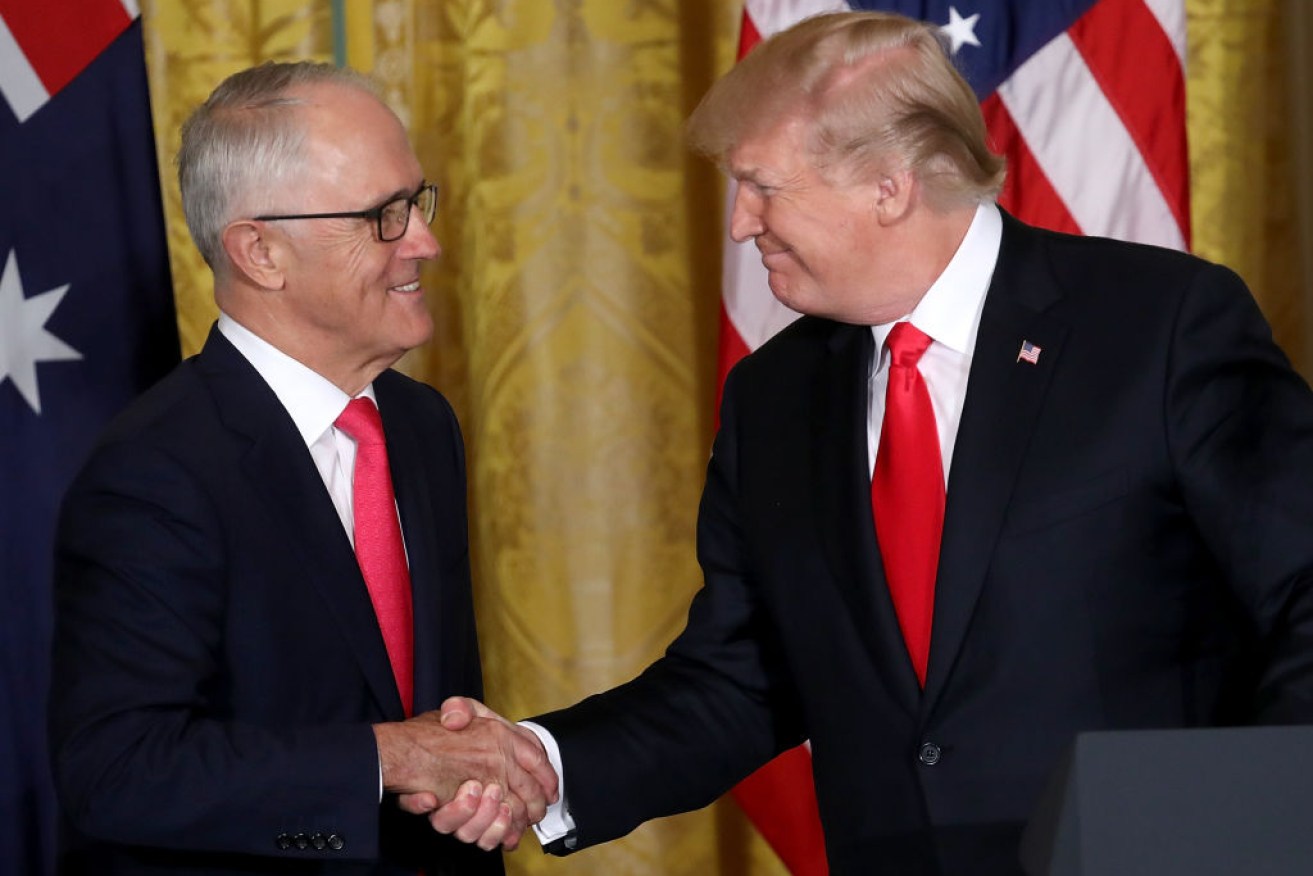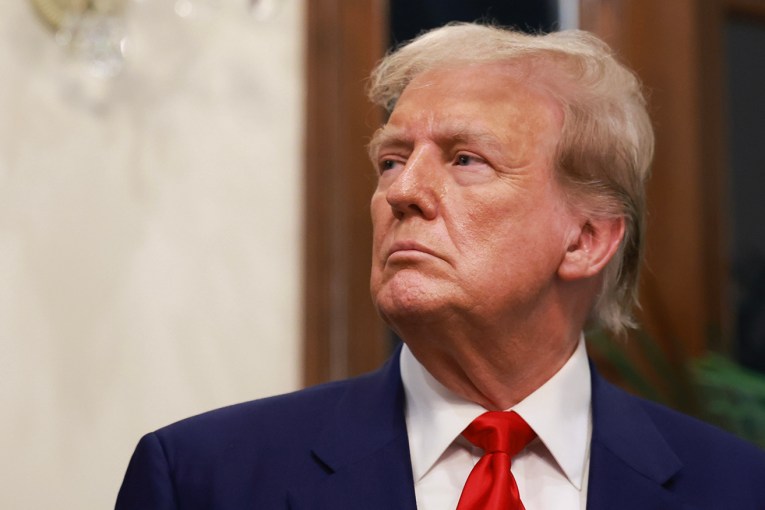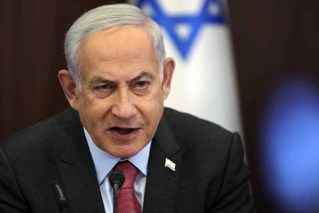US President Donald Trump and Malcolm Turnbull resolve tariff crisis


Following a tweet from US President Donald Trump, the prime minister took to Twitter with the announcement on Saturday. Photo: Getty
Prime Minister Malcolm Turnbull has confirmed Australia will be exempt from steel and aluminium tariffs after a “very good and productive” discussion with US President Donald Trump.
Mr Trump took to Twitter on Saturday morning to say he’d spoken with the prime minister and was “working very quickly” on a security agreement to avoid imposing tariffs.
“He is committed to having a very fair and reciprocal military and trade relationship.
“Working very quickly on a security agreement so we don’t have to impose steel or aluminium tariffs on our ally, the great nation of Australia!” he tweeted.
In response, Malcolm Turnbull told reporters on Saturday he had spoken to Mr Trump earlier in the day and had a “very good and productive” discussion, confirming the US would not impose tariffs on Australian steel and aluminium.
“The President was able to confirm that he would not impose tariffs on Australian steel and aluminium and, of course, now the legal paperwork — the proclamation process under the executive order — will take its course to put that direction into effect.
When asked whether the president asked for anything in return, Mr Turnbull said “no, nothing of that kind”.
“The reference to the security agreement in his tweet is
short-hand for the legal paperwork that has to follow through a proclamation in accordance with the executive order,” Mr Turnbull said.
Spoke to PM @TurnbullMalcolm of Australia. He is committed to having a very fair and reciprocal military and trade relationship. Working very quickly on a security agreement so we don’t have to impose steel or aluminum tariffs on our ally, the great nation of Australia!
— Donald J. Trump (@realDonaldTrump) March 9, 2018
Great discussion today on security and trade. Australia/US trade is fair & reciprocal & each of our nations has no closer ally. Thank you for confirming new tariffs won’t have to be imposed on Australian steel & aluminium – good for jobs in Australia and in US! https://t.co/9ZKMw5n1dZ
— Malcolm Turnbull (@TurnbullMalcolm) March 9, 2018
Earlier on Thursday, without being prompted, Mr Trump praised Australia in a strong sign Australia would not be hit by the tariffs.
“We have a very close relationship with Australia,” Mr Trump told reporters at a cabinet meeting.
“We have a trade surplus with Australia. Great country. Long term partner. We will be doing something with them.”
At the signing ceremony on Thursday at the White House that put the tariffs in motion in 15 days, Mr Trump did not specifically name Australia but he indicated a path would be created for “great partners and military allies” to sidestep America’s new 25 per cent tariffs on steel imported into the US and 10 per cent on aluminium.
Mr Trump appears to be using the threat of tariffs as leverage to win better deals for the US as it renegotiates the North American Free Trade Agreement with Canada and Mexico and force North Atlantic Treaty Organisation members in Europe, particularly Germany, to spend more on their military.
“We will hold off the tariff on those two countries (Canada and Mexico) to see whether or not we are able to make the deal on NAFTA,” Mr Trump said.
He also admonished Germany for not contributing more to NATO.
Australian Industry Group Chief Executive Innes Willox said the tariff announcement would still hurt companies even if an exemption was granted.
“While we hope that Australia will win exemptions from the latest steel and aluminium tariffs, this would be only a partial victory,” Mr Willox said on Friday.
He said any special treatment afforded to Australia would only apply to shipments coming out of the country, and not to those from Australian companies in third markets.
“As a country with a high reliance on trade, the risks of broader damage to the global economy from a trade war are great,” Mr Willox said.
Former prime minister Kevin Rudd said on Saturday that even if Australia secured an exemption, a global tit-for-tat was a concern, disagreeing with Mr Trump’s belief that trade wars are good.
“History tells us they are bad, and they end up causing not just a contraction in the global trade but, as a result of that, a contraction in global growth,” he told ABC.
-with AAP








